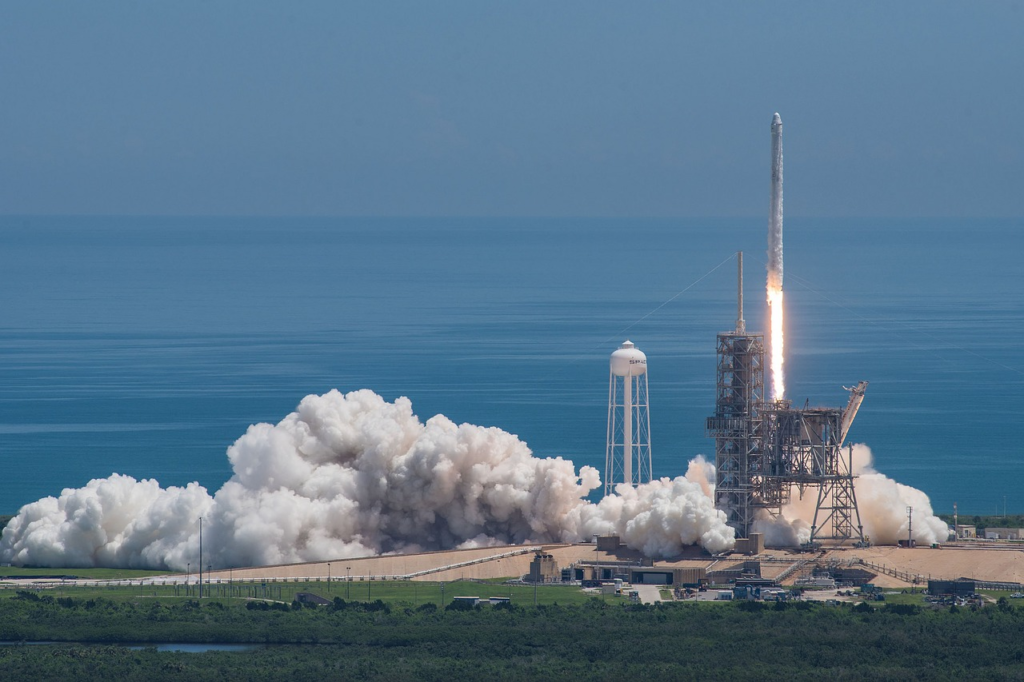
SpaceX achieved a momentous yet bittersweet milestone during Thursday’s (January 17, 2025) Starship test flight when the spacecraft experienced catastrophic failure minutes after its upgraded booster successfully returned to the launch pad.
Elon Musk-founded aerospace company witnessed the destruction of its next-generation spacecraft approximately eight and a half minutes into the mission, following the sequential shutdown of its six engines during ascent.
 Photo: Official SpaceX Photos
Photo: Official SpaceX PhotosSpaceX Starship Destroyed
The mission’s flight plan had designated the spacecraft to traverse the Gulf of Mexico from its Texas launch site, embarking on a near-global circumnavigation similar to previous test flights.
The vehicle carried ten dummy satellites intended for deployment testing, marking a significant step in SpaceX’s development of payload delivery capabilities.
Here’s a thread with all the different videos coming in of Ship 33 break-up and re-entry: pic.twitter.com/0u0vyU76Ug
— Felix Space Time (@Space_Time3) January 16, 2025
In a remarkable demonstration of precision engineering, SpaceX successfully executed a rare booster recovery using the launch tower’s mechanical arms, nicknamed “chopsticks.”
The massive booster maintained a controlled hover above the launch pad before the tower’s arms secured it, marking only the second successful catch in the program’s history.
After SpaceX Starship’s rapid unscheduled disassembly, our most tracked flights are all aircraft holding or diverting to avoid any potential debris. https://t.co/CzXnD5YvZg pic.twitter.com/4FTa4zI24V
— Flightradar24 (@flightradar24) January 16, 2025
SpaceX spokesman Dan Huot addressed the mixed outcome, acknowledging the achievement of the booster recovery while expressing disappointment over the spacecraft’s loss.
“The data analysis will require time to determine the cause of failure,” Huot explained, emphasizing the experimental nature of the test flight program.
The event drew crowds of spectators to Texas’s southern tip, who witnessed both the triumph of the booster recovery and the subsequent disappointment of the spacecraft’s destruction, which SpaceX termed a “rapid unscheduled disassembly.”
 Photo: Needpix.com
Photo: Needpix.comFinal Data and Program Context
The spacecraft’s final telemetry revealed critical performance metrics, reaching an altitude of 90 miles and achieving a velocity of 13,245 mph before communication loss. The massive 400-foot rocket launched from Boca Chica Beach near the Mexican border in the late afternoon, strategically timed to enable daylight entry over the Indian Ocean.
SpaceX implemented significant spacecraft enhancements for this demonstration, incorporating a suite of satellite mockups matching Starlink specifications. These test satellites, designed for intentional destruction during reentry, represented a crucial step toward operational satellite deployment capabilities.
Elon Musk’s strategic vision positions Starship as the future launch platform for Starlink satellites, with subsequent plans encompassing broader satellite services and human spaceflight missions.
The test marked the seventh flight of this revolutionary rocket system, which holds particular significance for NASA’s lunar exploration program, as the space agency has designated two Starships for future moon landings.
The space industry witnessed dual milestones as Jeff Bezos’s Blue Origin achieved a significant breakthrough in Florida hours earlier. Blue Origin’s New Glenn rocket completed its inaugural orbital flight, successfully deploying an experimental satellite into high Earth orbit.
However, the mission experienced a setback when the first-stage booster failed to accomplish its planned ocean platform landing.
Stay tuned with us. Further, follow us on social media for the latest updates.
Join us on Telegram Group for the Latest Aviation Updates. Subsequently, follow us on Google News
SpaceX Starship Launch Succesfully in its Fifth Test Flight
The post SpaceX Starship Destroyed in Test Flight, Airlines Routes Affected appeared first on Aviation A2Z.













